Certified nursing assistants play a central role in the operation of any healthcare facility. They provide hands-on care to patients and assist nurses with their duties. The responsibilities of a CNA vary depending on the facility and state regulations. Still, they usually involve helping the nursing team with patient care, monitoring patient vitals and documents, dressing wounds, feeding patients if they cannot do so themselves, recording progress notes on patients, and assisting with various other tasks as required. CNA resume examples can be an excellent resource for anyone looking to apply for a job as a CNA or advance their career in this field. A strong resume is essential for any job seeker as it represents your first impression to potential employers. A concise, well-organized CV highlighting your experience, education, skills, and abilities will significantly increase your chances of being called for an interview.
CNA Resume Example

Download This CNA Resume as PDF
Hospice aide Resume Example
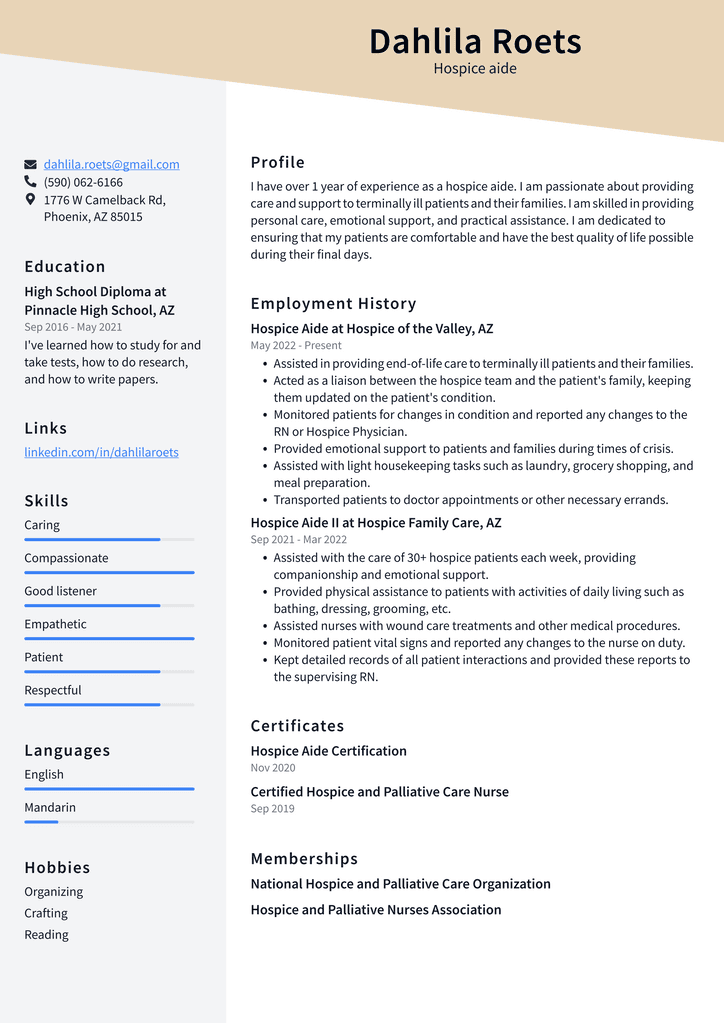
Download This Hospice aide Resume as PDF
Home health aide Resume Example
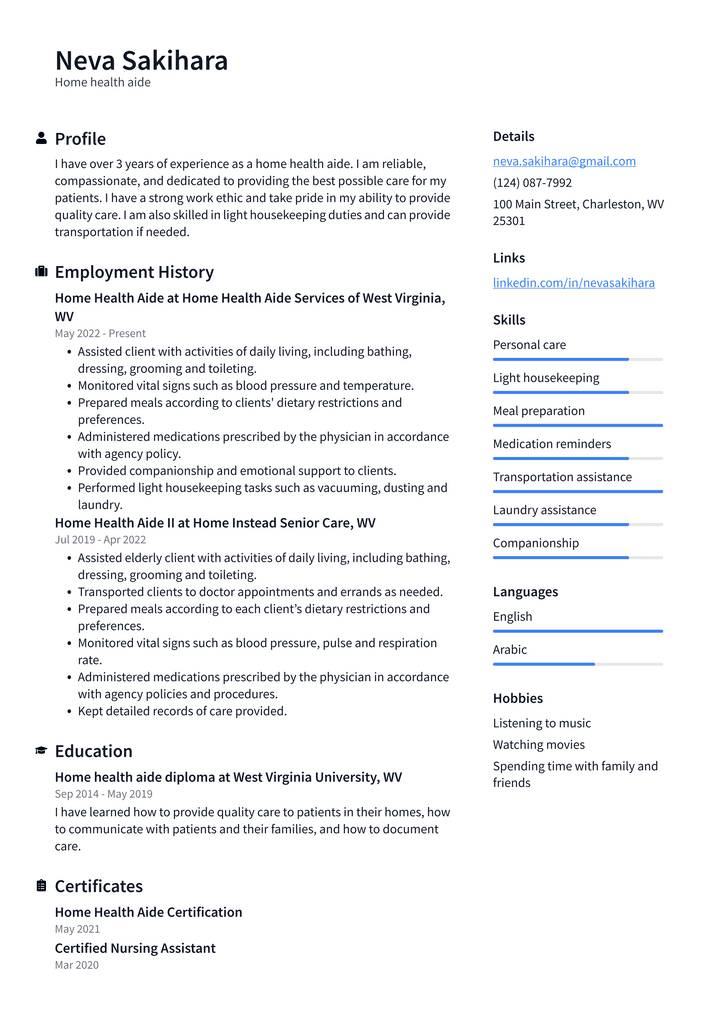
Download This Home health aide Resume as PDF
Licensed practical nurse Resume Example
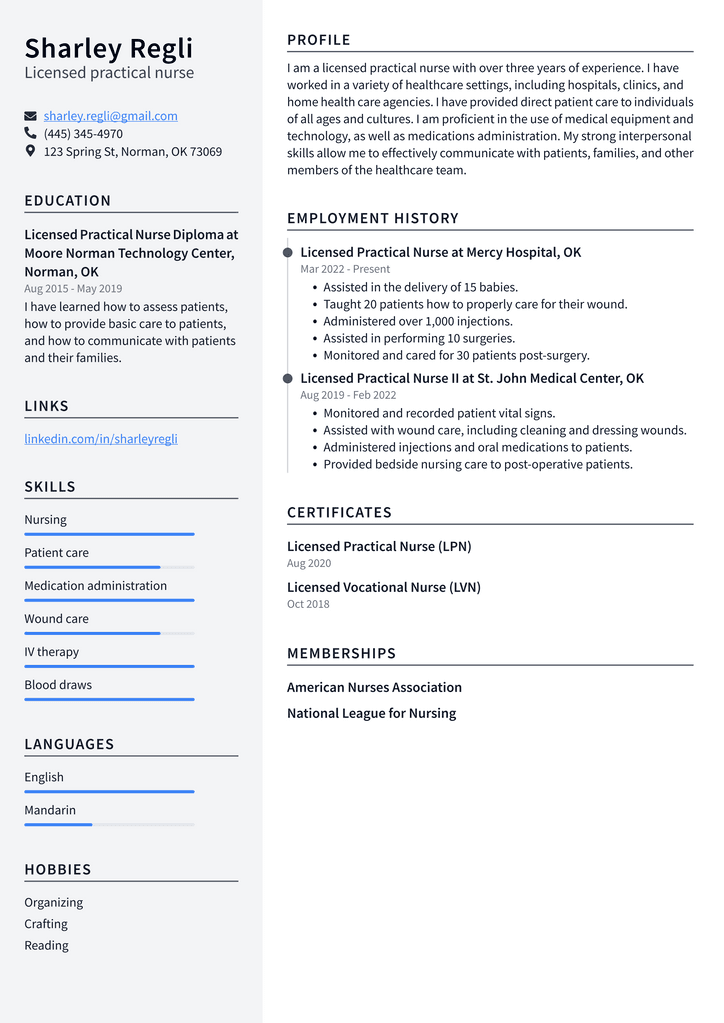
Download This Licensed practical nurse Resume as PDF
Certified home health aide Resume Example
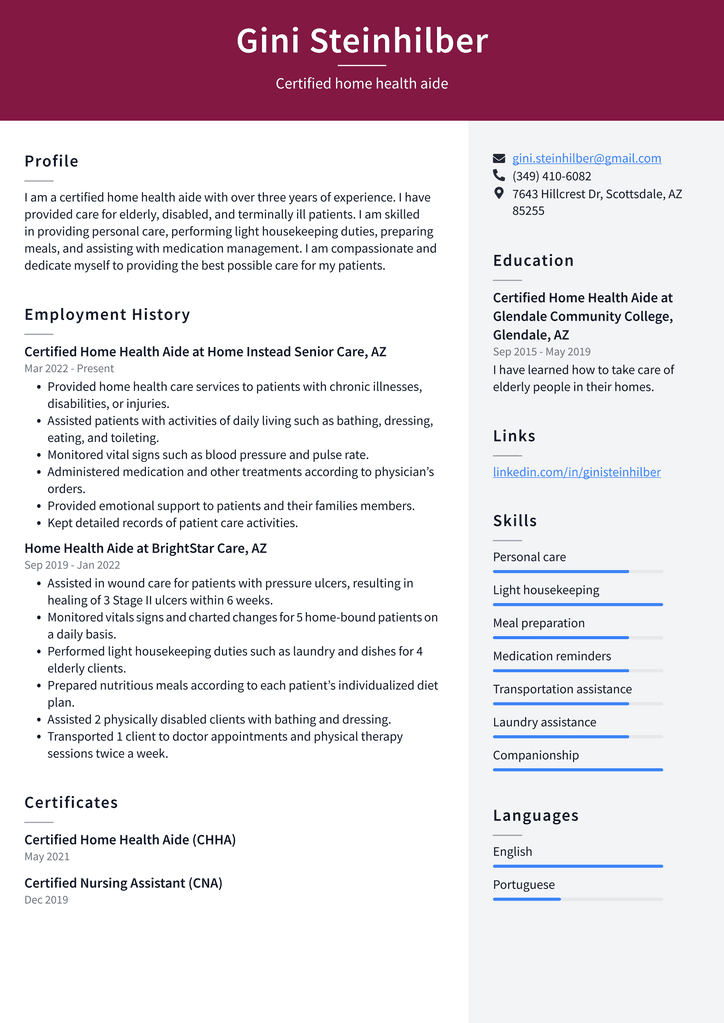
Download This Certified home health aide Resume as PDF
Certified nursing assistant Resume Example
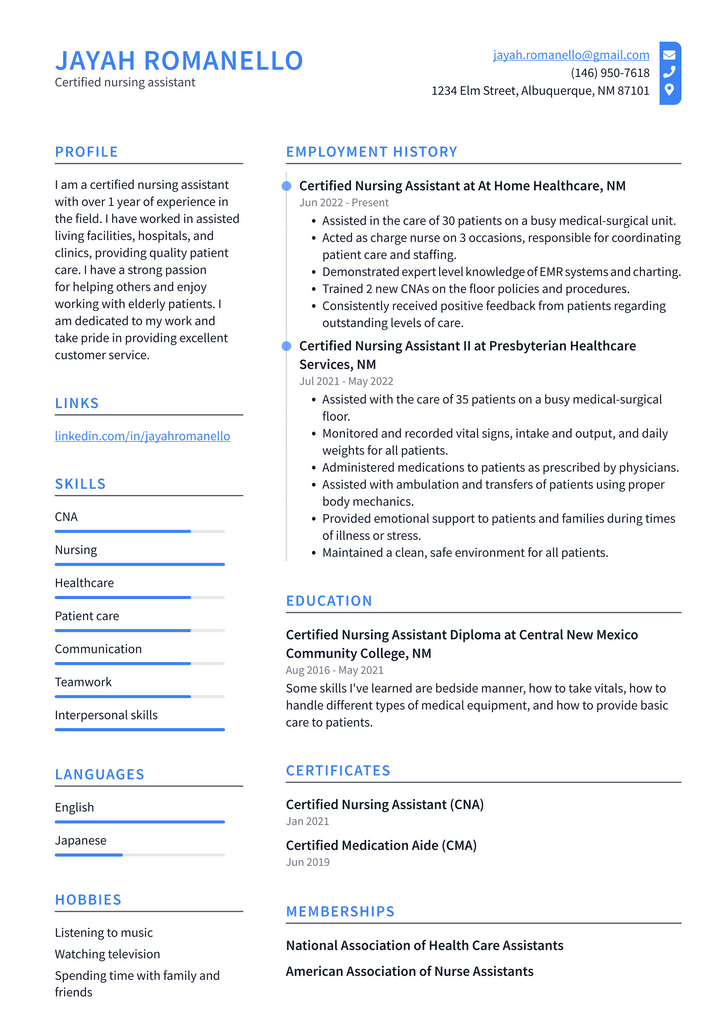
Download This Certified nursing assistant Resume as PDF
Personal care aide Resume Example
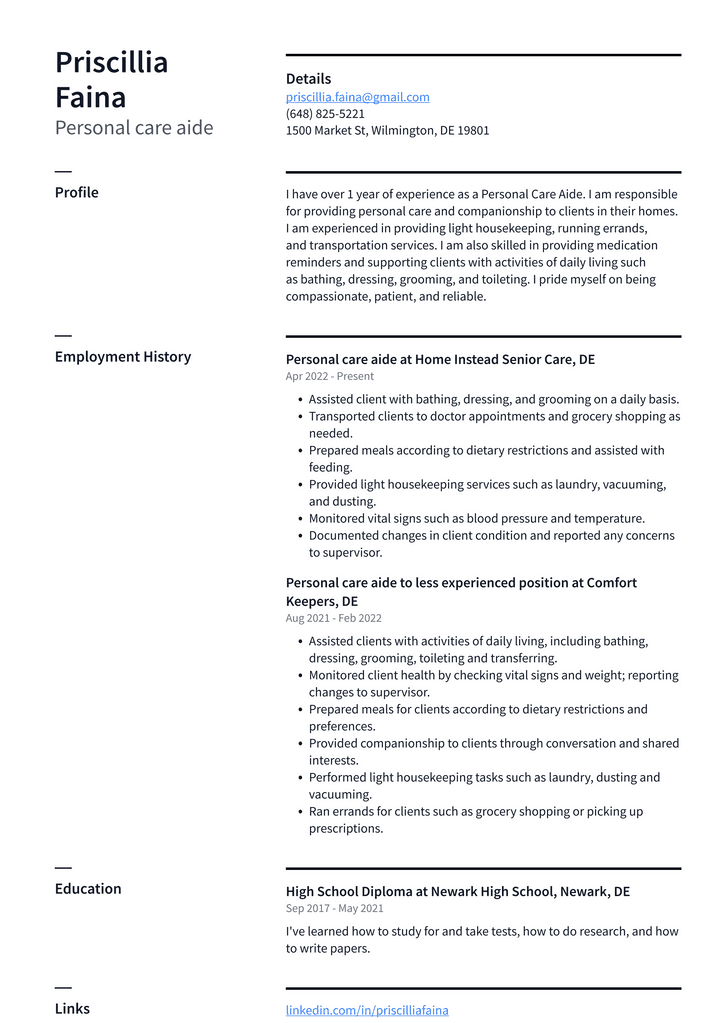
Download This Personal care aide Resume as PDF
Create a Great First Impression
A strong resume is a critical component of any job search, but it isn’t enough to create a strong resume. You also need to ensure it gets in front of the right people. The best way to do this is to ensure your resume is optimized for the major job boards so that it has the best chance of being found by hiring managers and recruiters. Include your name and contact information at the top of the page, followed by a professional summary of 2-4 sentences. Use this space to highlight your relevant skills, experience, and education so that hiring managers can quickly and easily determine if you’re a good fit for their job opening. These few sentences can make the difference in whether your resume is put in the “yes” or “no” pile!
List of Skills and Abilities
Your CNA resume should highlight your skills and abilities so that hiring managers can see you’re the right person for the job. This section is a great place to start, as it lets you list the skills and abilities you’ve gained through your previous work experience, education, volunteer work, and extracurricular activities. Make sure to include both hard skills and soft skills. Hard skills are things like technical expertise or proficiency in specific computer software; soft skills are:
- More general traits like attention to detail.
- Communicating clearly and effectively.
- Showing up on time and ready to work, and following directions.
Summary of Qualifications
Another great way to highlight your skills and abilities on your CNA resume is to create a “qualifications” section or “qualifications summary.” This section is often used in academic or professional resumes, allowing you to quickly and efficiently list your most relevant skills and achievements. Begin by listing each of your most important education and work experiences, and then for each entry, provide a short explanation of how it makes you a great candidate for the job. This is one of the best ways to quickly communicate the value of your experience and skills to hiring managers.
Education
Education is a critical component of any resume and should be listed near the top of your CV. Begin by including your highest level of education (i.e., high school, associate’s degree, bachelor’s degree, master’s degree, etc.), your graduation date, and the name of the institution where you received your education. If you have a degree in a healthcare-related field, you can also include the name of the course of study, your GPA (though this isn’t always required), and a summary of what you learned during your studies. You can also include your expected graduation date if you’re currently in school.
Certification and Licensing Information
If you have any industry certifications or licensing, it’s a good idea to include them on your CNA resume. Begin by listing your certificate or license, the name of the organization that approved it, and the date you obtained it. It’s also a good idea to briefly explain what the certification or license means, the work it applies to, and the skills or knowledge you need to achieve it. If you have multiple certificates or licenses, you can list them all in one section or create a separate area for each.
Conclusion
Your CNA resume should be short, and it’s best to keep it around one page. Hiring managers don’t want to wade through a long summary; they want to quickly and easily find out if you’re the right candidate for the job. It’s important to remember that a resume is more than just a list of your previous experience and education; it’s also a marketing tool designed to get you an interview. With that in mind, it’s essential to ensure your CV is accurate and compelling so that hiring managers will want to learn more about you and invite you to an interview. Your CNA resume examples can be an excellent resource for creating a solid CV.